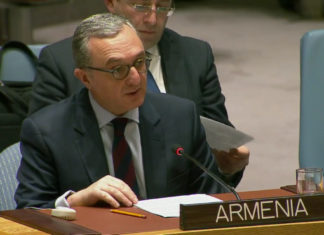By Edmond Y. Azadian
While Armenian news media outlets have been concentrating on the French Senate action criminalizing the denial of the Armenian Genocide, closer to home relations with neighboring Georgia are causing heartaches for citizens and government officials alike. Relations are tense, to say the least.
Georgian authorities are cognizant that they have the upper hand in their bilateral relations with Armenia; they are using that advantage to help tighten the noose which Azerbaijan and Turkey have put in place through their blockade. That policy is nothing less than the continuation of the Genocide by squeezing Armenia out of existence.
By virtue of its NATO ambitions, the Tbilisi government is doing anything and everything to ingratiate itself to Ankara and Baku. Unfortunately, Armenia is at the receiving end of that policy.
Georgian actions have bearings on three different areas: a) regional politics, b) domestic abuses of human rights in Georgia and c) a planned depopulation program in Javakhk.
Because of the blockade, Armenia is restricted in its access to the outside world, which impacts negatively on its economic development.
One outlet for Armenian is Iran, which remains precarious, because of sanctions and threats against that country by the United States and the European Union. In the event of a conflagration, Armenia will be devastated.









